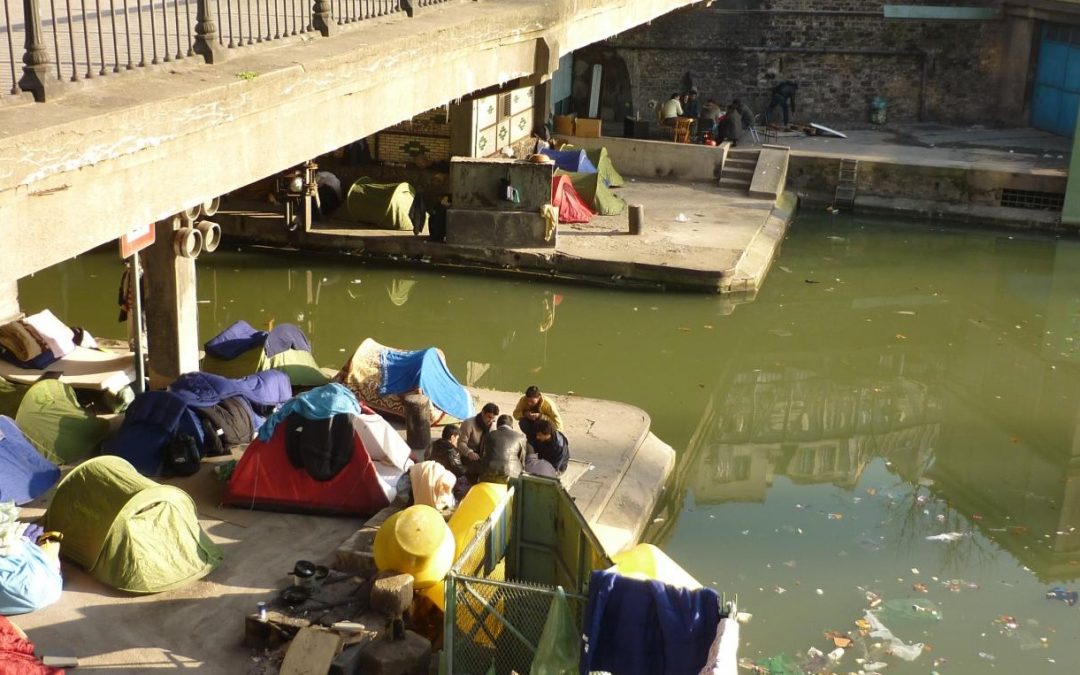In the early hours of the 9th of May, more than 1 600 people have been evacuated from makeshift camps, at Porte de la Chapelle in Paris to (emergency) reception centres across the Ile de France region. NGOs like France terre d’asile were present to inform and accompany them. Evacuations of such camps have almost become routine in Paris, despite the opening of a “humanitarian centre” by the City of Paris in November 2016.
Afghans, Eritreans and Sudanese form the majority of migrants sleeping rough in Paris under appalling conditions. Among those evacuated in the beginning of this month, there were 75 women and unaccompanied children. For most of them, this is not the first evacuation, and many had come back from centres they were taken to during a previous operation.
Only three months ago, another evacuation was carried out in the area around Porte de la Chappelle. During this operation housing was offered to 200 people. Since the 2nd of June 2015, a total of 33 evacuation operations of the camps in Paris have been organised by the services of the city and the government providing a total of 24 604 persons with shelter.
Around 40% of the asylum applications in France are registered in the Ile-de-France region. In 2016, the number of persons arriving in the Paris area has significantly increased. An involuntary consequence of evacuation operations, through which migrants and asylum seekers are offered at least temporary accommodation, is that it became gradually perceived as the only access to shelter by asylum seekers, increasing again the number of people coming to Paris.
More than ever, we need a flexible scheme to tackle this systemic issue. At present, emergency reception centres, originally created to house migrants from Calais (the so-called reception and Orientation Centres -CAO), combined with reception centres for asylum seekers, can accommodate about 50 000 persons, in France. But needs are far greater: we would need 120 000 to 150 000 places. The real problem is the lack of anticipation of the number of arrivals and the deficiencies regarding the solutions. This type of situation could have been prevented.
The solution is the creation of transit centres in major cities across the territory, which would temporarily host people wishing to seek asylum, examine their administrative and social situation, refer them to relevant services and organize their reception in adequate centres. The transfers must be organized swiftly.
In France, it is the State who is competent for designing and implementing the refugee reception policy and therefore it is its responsibility to ensure a country-wide management of the reception system. Until now, measures were taken too late and with insufficient means.
This situation has gone on for far too long. It is urgent that the new government take action, or it will be a matter of days before tents reappear in the streets of Paris and a new evacuation is needed.
ECRE publishes op-eds by commentators with relevant experience and expertise in the field who want to contribute to the debate on refugee rights in Europe. The views expressed are those of the author and does not necessarily reflect ECRE positions.
Photo: (cc) Evan Bench, Canal Saint Martin, Paris, 2010

